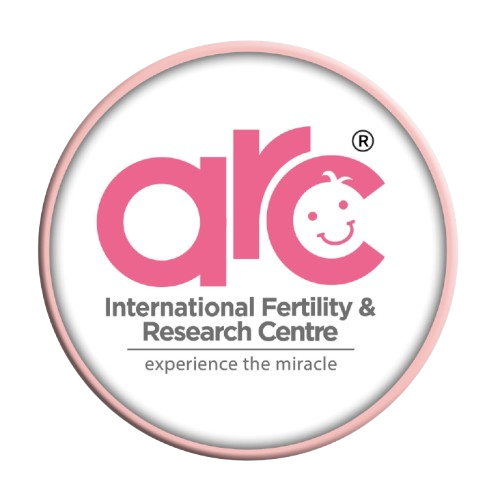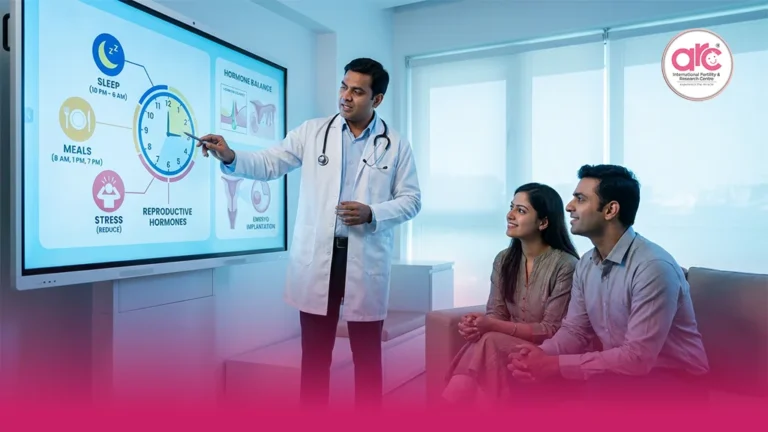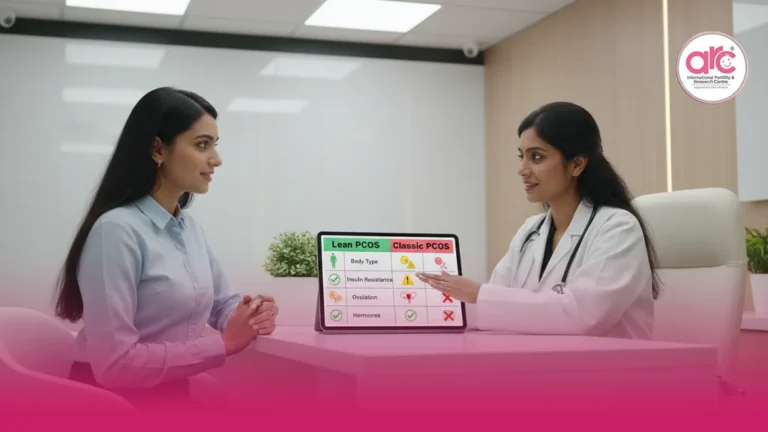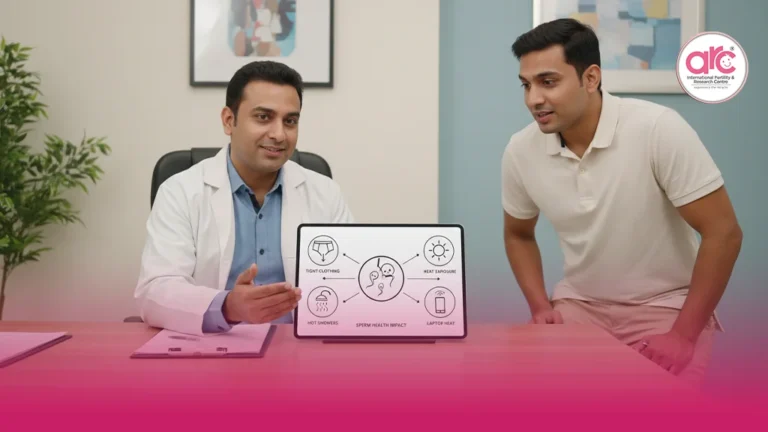Overview
Let’s face it — when you first hear about fertility treatments, the words alone can feel overwhelming.
IVF, ICSI, IUI… it’s like the alphabet soup of medicine.
But when you break it down, it’s really about one simple thing — giving you and your partner the best chance to bring home a baby.
So today, let’s talk about one of the most powerful techniques in that journey — ICSI, said simply, Intracytoplasmic Sperm Injection.
It sounds complex, but don’t worry — I’ll explain it the way I’d explain it to you in my clinic, not in a textbook.
ICSI Explaination in simple words
Think of ICSI as precision work.
During a regular IVF cycle, we place many sperm next to each egg in a dish — and let nature take its course.
Some sperm make it through; some don’t.
ICSI changes that game completely.
Here, an embryologist picks one perfect-looking sperm — the healthiest, strongest one — and injects it directly into the centre of the egg using a microscopic needle.
It’s controlled, deliberate, and incredibly effective — especially when male infertility is part of the picture.
In fact, across India, fertilisation success rates with ICSI often touch 80–85%, making it one of the most trusted fertility tools today.
So, Why Choose ICSI?
If you’re dealing with low sperm count, weak sperm movement, or unusual sperm shape — ICSI can be a game-changer.
It helps bypass all those natural barriers that might be standing in your way.
Let’s say IVF is like hosting a dance where sperm and egg find each other naturally.
Then ICSI? That’s your fertility specialist stepping in to play matchmaker — directly introducing the sperm to the egg and saying, “Here, meet your partner.”
For many couples in Chennai and across India, this precise method has opened doors that once seemed closed.
ICSI vs. Conventional IVF — The Quick Look
| Feature | Conventional IVF | ICSI Treatment |
|---|---|---|
| How Fertilisation Happens | Sperm and egg are mixed in a dish; fertilisation happens naturally. | A single sperm is injected directly into the egg by an embryologist. |
| Best For | Couples with unexplained infertility or female-factor issues (like blocked tubes). | Couples with severe male infertility or previous IVF failures. |
| Level of Control | Natural selection in the lab. | Hands-on precision — every sperm carefully chosen. |
You could say IVF hopes it’ll happen, while ICSI makes it happen.
When Does a Doctor Recommend ICSI?
Usually, when sperm need an extra helping hand.
Your specialist might suggest ICSI if:
Sperm count is low (Oligospermia) — every sperm counts, and ICSI makes the most of each one.
Motility is poor — sperm that don’t swim well get a direct ride.
Sperm shape is abnormal — ICSI helps bypass that tough outer shell of the egg.
Previous IVF attempts didn’t lead to fertilisation.
Frozen sperm is being used (since thawed sperm may be less active).
It’s not for every couple — but when needed, it’s that quiet hero that changes the story.
Step-by-Step: What Really Happens in ICSI
Let’s walk through the process, just as we’d discuss it in your consultation.
1. Ovarian Stimulation
You’ll take hormone medications that gently encourage your ovaries to produce multiple mature eggs. Your doctor tracks your progress through scans and blood tests — making sure your body’s responding just right.
2. Egg Retrieval
Once your follicles are ready, it’s time. You’ll be given light sedation, so you won’t feel a thing. In a short procedure (around 15–20 minutes), we collect the eggs carefully using ultrasound guidance.
3. The ICSI Magic (In the Lab)
Now the spotlight shifts to the embryologist.
They study the sperm sample under a high-powered microscope, choose one perfect sperm, and — with a steady hand — inject it directly into your egg.
It’s breathtakingly precise, like art meeting science.
Over the next few days, those fertilised eggs (now embryos) grow and divide under watchful eyes in the lab.
4. Embryo Transfer
Finally, one beautiful embryo — the best of the batch — is gently placed into your uterus. The process is quick, painless, and done while you’re awake.
And just like that, your new chapter begins.
ICSI Success Rates — What the Numbers Really Mean
Everyone asks this first: “What are my chances?”
And that’s fair. You deserve straight answers.
On average, fertility clinics in India see clinical pregnancy rates of 45–55% for women under 35 with ICSI.
As age increases, egg quality naturally drops — which can bring success rates down a bit.
Key terms:
Here’s how to make sense of the key terms your doctor might mention:
Fertilisation Rate: How many of your eggs successfully fertilised after injection.
Clinical Pregnancy Rate: How many cycles show a confirmed pregnancy on ultrasound.
Live Birth Rate: The number that truly matters — the percentage of cycles that result in a healthy baby.
These numbers aren’t promises, but they’re proof that ICSI gives science and hope a beautiful partnership.
The Real Benefits — and What to Keep in Mind
The beauty of ICSI lies in control.
It takes away the guesswork — the “will the sperm make it?” question — and gives fertilisation a direct path.
For couples struggling with severe male infertility, it’s not just a medical step — it’s a lifeline.
And yes, you might wonder about risks. Most are the same as in a regular IVF cycle: mild ovarian hyperstimulation, a small chance of twins if multiple embryos are transferred, and the usual post-retrieval soreness.
As for ICSI itself? Studies worldwide show outcomes nearly identical to IVF — with no significant increase in birth defects.
Any minor variations usually link back to the underlying infertility, not the treatment.
That’s why the goal at our fertility clinic in Chennai isn’t just success — it’s clarity. You deserve to know what’s happening at every step.
Your Questions, Answered — The Honest Way
1. Is ICSI painful?
Not really. The actual sperm injection happens in the lab — you won’t feel that at all. The only procedure you’ll experience is egg retrieval, which is done under sedation. A little cramping afterward is normal, and your doctor will help manage that.
2. How much does ICSI cost in India?
It varies depending on your city, your treatment plan, and your clinic. ICSI does cost more than standard IVF because it needs specialised lab tools and an experienced embryologist’s steady hands.
Always ask for a clear breakdown — covering medications, retrieval, transfer, and lab work. Transparency matters.
3. Does ICSI increase birth defect risks?
Understandably, this is a big concern. Current research shows the risk is similar to that of natural conception or IVF. A few studies hint at a slight rise, but that’s usually due to underlying genetic or sperm factors — not the ICSI technique itself.
If you’re still worried, ask your doctor about genetic testing options like embryo biopsy or PGT (Preimplantation Genetic Testing). They can walk you through what’s right for your case.
A Final Word — Science, Heart, and Hope
ICSI isn’t just a lab technique.
It’s a quiet miracle that’s helped countless couples in Chennai and across India build the families they dreamed of.
Every story is unique — some take one cycle, some take more — but the goal is the same: turning that long wait into a moment of joy.
At ARC Fertility Centre, we believe in walking with you, not just treating you.
You’ll find medical precision, yes — but also the warmth, honesty, and emotional support that make all the difference.
Because fertility isn’t just about eggs and sperm.
It’s about people.
And every embryo begins with hope.




